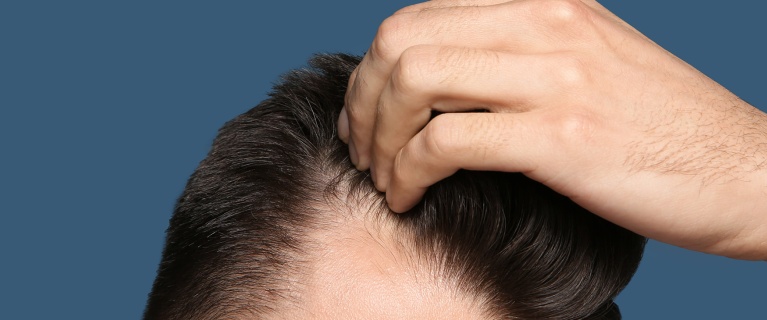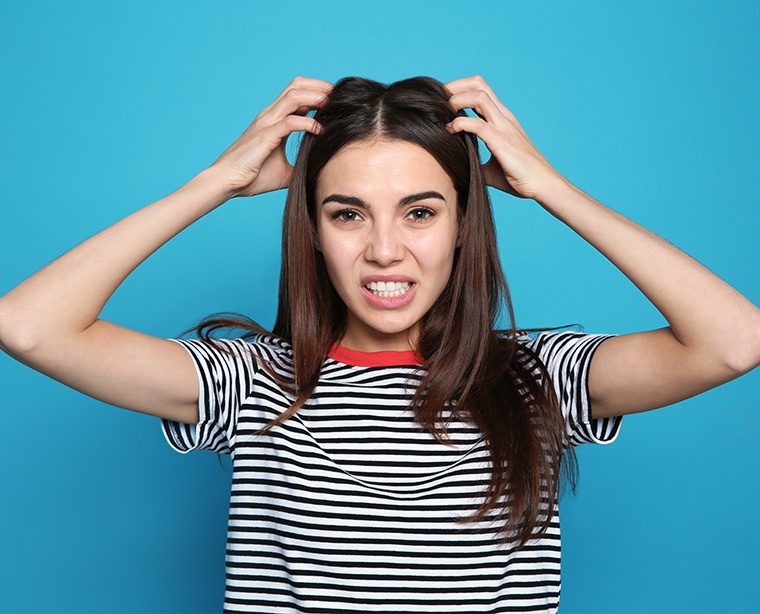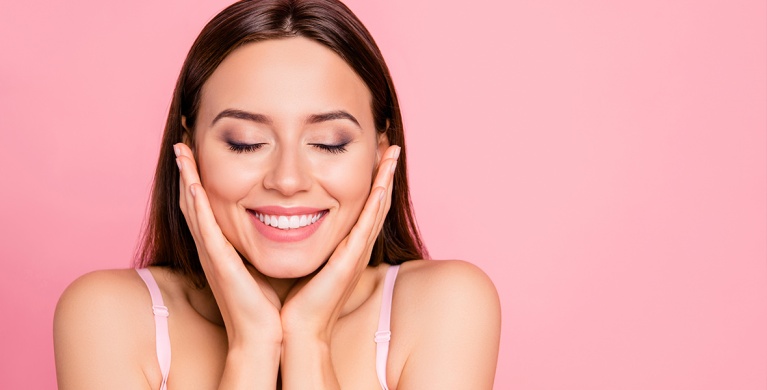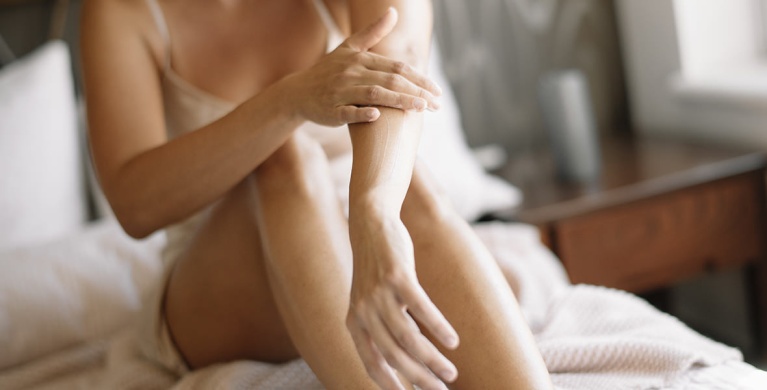

Eczema on the scalp

If patches on your scalp make you want to furiously scratch at your head, chances are you have eczema. In any case, you are experiencing inflammation. So, is it allergic eczema or atopic eczema? If only the scalp is affected, then it is certainly an allergy (and thus allergic eczema, also known as contact eczema). But be careful: lice also causes itching of the scalp...
Allergic eczema on the scalp
If eczema is limited to the head, these itchy red patches are the result of an allergic reaction.
Eczema symptoms include more than just the infamous redness, which can be difficult to see on the scalp. Oozing and scabs are also present in acute eczema. Sometimes, the only symptom is “dandruff”, but always accompanied by intense itching.
Identify the cause
Hair care products are the most common triggers for eczema on the scalp:
- hair dye (paraphenylenediamine)
- bleach (ammonium persulfate)
- perms (ammonium thiosulfate)
- shampoo (foaming agents: cocamidopropyl betaine)
- etc.
Other substances can also trigger a reaction, such as nail polish, for example, which may come into contact with the head through scratching with your hands. The allergy can therefore be caused by indirect contact (allergen carried through the air or transferred by the hand touching another area of the body, etc.).
You can suddenly become allergic to the same shampoo you have used dozens of times in the past. So, the culprit is not necessarily one of your new products!
What should you do?
If you have successfully identified the triggering agent, such as a hair dye for example, simply avoid any hair dyes containing the same allergen in order to prevent future allergic reactions. The same allergen, however, can be found in various products, which can make total avoidance difficult. A dermato-allergologist will be able to advise you on how to track down and avoid the allergen. The consultation will include several questions on your habits as well as allergy tests (patch tests).
What shampoo should you use for eczema on the scalp?
If you have allergic eczema
You will need to eliminate any shampoo containing the identified allergen. The dermato-allergologist can also help by recommending you safe alternative shampoos you can use.
Ultimately, it is up to you to be careful. For example, if you are allergic to a preservative like methylisothiazolinone, you will need to check the label on your shampoo to make sure that this tricky name is not on the ingredients list.
If you have atopic eczema
If eczema is present on other areas of the body, you may have atopic eczema. However, the scalp is rarely affected by this disease. You will need to ensure that there is no associated allergic eczema.
As a general rule, you should choose products with the fewest ingredients possible in order to reduce the risks of aggravating flare-ups or causing atopic eczema to spread. When choosing a shampoo, be careful to avoid those that contain fragrances or essential oils, as these pose an allergy risk. Organic or natural claims provide no guarantee against allergies.
Seborrheic dermatitis is not eczema
In infants, this condition is widely known as “cradle cap”. In adults, it is referred to as seborrheic dermatitis.These patches, which produce “dandruff” that is often white or yellow, are not eczema. In fact, what you have is inflammation which can also itch. However, the condition is caused by a fungus rather than by an allergic reaction, which is why the term “seborrheic eczema” is inappropriate.


